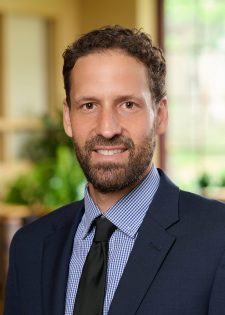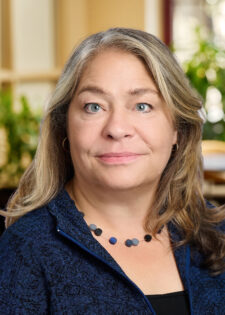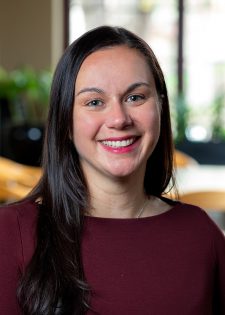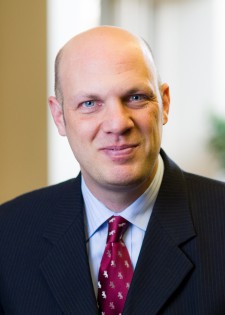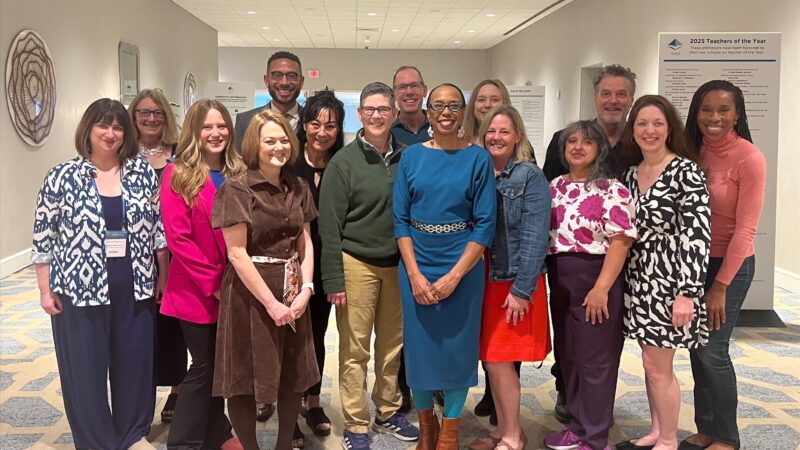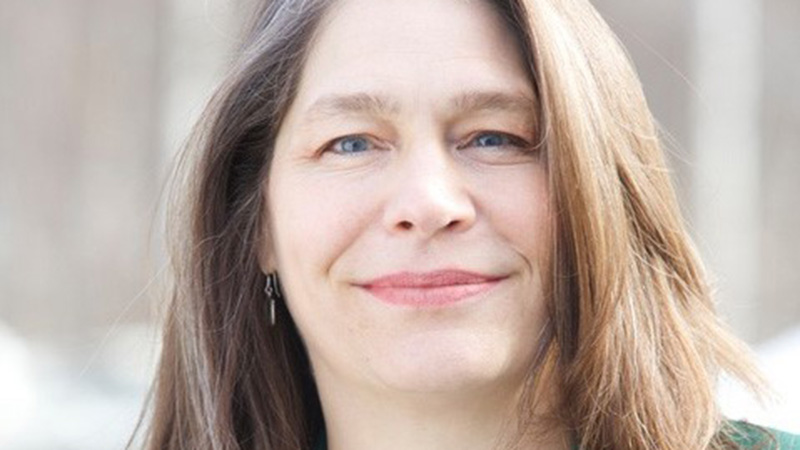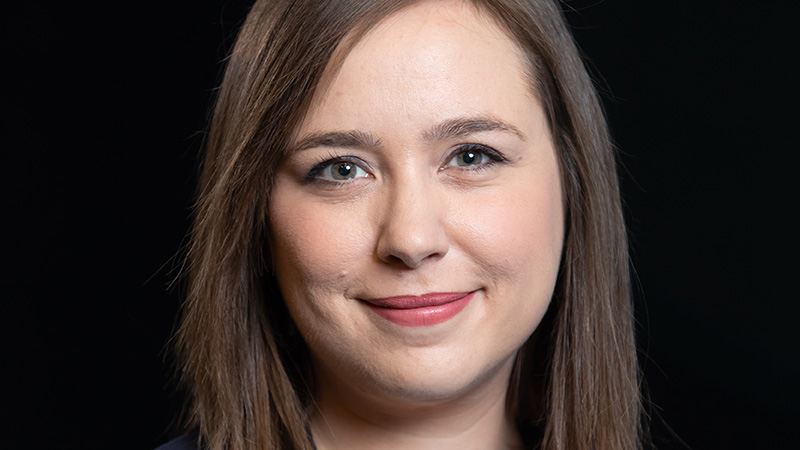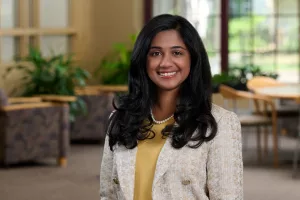
Assistant Teaching Professor Sarita Matheson
Sarita Matheson had always been interested in biology, so much so that when she earned her bachelor’s degree in biochemistry at the University of Illinois at Urbana-Champaign, she was recognized for having the best senior thesis.
But Matheson has also been long interested in the law, especially watching her parents struggle with the rules of a new country after immigrating to the U.S. from India. “There’s something about being a voice for those individuals,” said Matheson. “Aside from science, there’s a part of me that wanted to go to law school to bridge that gap.”
Fortunately, the Illinois native found a dual degree program at the University of Minnesota that allowed her to earn a master’s in molecular, cellular, developmental biology and genetics, followed by a law degree. Having moved to Minnesota for the program, Matheson then remained after graduation in 2014 to be an Equal Justice Works AmeriCorps legal fellow with Mid-Minnesota Legal Aid.
There, she represented minors in immigration court at a time when there was a flux of unaccompanied minors crossing the border. The challenge for attorneys like Matheson on those cases was the need to navigate both federal immigration courts and state family courts. “That was one of the most meaningful opportunities I’ve had,” she added. “They were very scared to go home, having come from violent communities. And they just wanted to learn and go to school. It was meaningful to help them.”
Since her fellowship, Matheson has clerked for Judge Edward Wahl and worked at large law firms in Chicago and Minneapolis, handling intellectual property, antitrust, and contracts matters. She also mentored new attorneys, which gave her a taste of teaching, and launched a firm-wide pro-bono program that serves migrants on the border with Mexico. She’s taught legal writing at the University of Minnesota Law School since 2021 as an adjunct.
Matheson, who lives in the Twin Cities metro with her husband and two young children (and a dog!), is continuing to teach legal writing at Mitchell Hamline. “Legal writing is the thing you have to do well in any situation in the legal profession,” said Matheson. “It’s also one thing I didn’t feel was natural to me. I worked really hard at it. Having that perspective of working really hard at a craft and seeing the power of that skill is a benefit I think I bring to this course.
“I want to encourage other students to keep at it and work hard.”
Matheson also anticipates bringing her science knowledge and research skills into her work at Mitchell Hamline in intellectual property and related areas. But regardless of what she’s teaching, Matheson adds she’s most looking forward to connecting and working with students. “I love seeing students start in one place and grow over a year.
“You work closely with them and get their perspectives, and that also makes me feel connected to community.”
Mitchell Hamline faculty
The latest from Faculty in the News
ThinkTech Hawaii January 14, 2026
CBS News January 22, 2026
KSTP News January 29, 2026
The latest faculty publications
Star Tribune January 9, 2026
Critical Care Medicine 54(1):p 154-162, January 2026 January 1, 2026
64 University of Louisville Law Review 77 (2025) December 15, 2025
The latest faculty headlines
Mitchell Hamline faculty showcase expertise at 2026 AALS Annual Meeting
From left: Miriam Itzkowitz, Laura Reilly ’94, Natalie Netzel ’15, Tressa Ries, Jared Mollenkof, Kaori Kenmotsu ’22, Carolyn Grose, Anthony Niedwiecki, Camille Davidson, Eleanor Frisch, Lynn LeMoine ’11, Hetal Dalal, Brad Colbert ’85, Leanne Fuith ’10, …
Mitchell Hamline welcomes Jessica West to faculty
Assistant Professor of Law Jessica West Joining the Mitchell Hamline faculty as an assistant professor of law, Jessica West combines a passion for student success with her experience as a practitioner to help law students build the skills they need for …
Eleanor Frisch joins legal writing faculty
Assistant Professor of Law Eleanor Frisch Having a strong sense of justice and being skilled at argumentation are what first led Eleanor Frisch (they/she) to a career in law, but it is a much deeper passion that has turned her now to teaching—a love fo …


